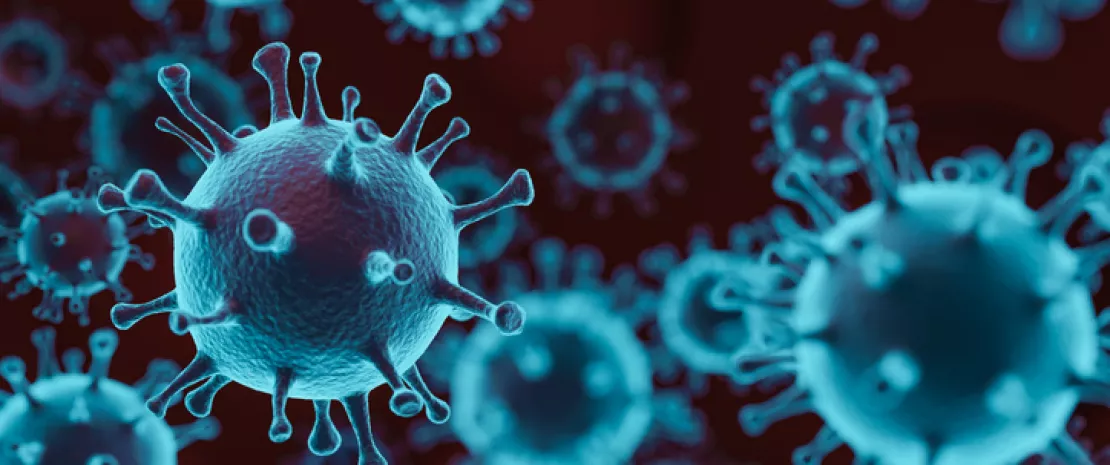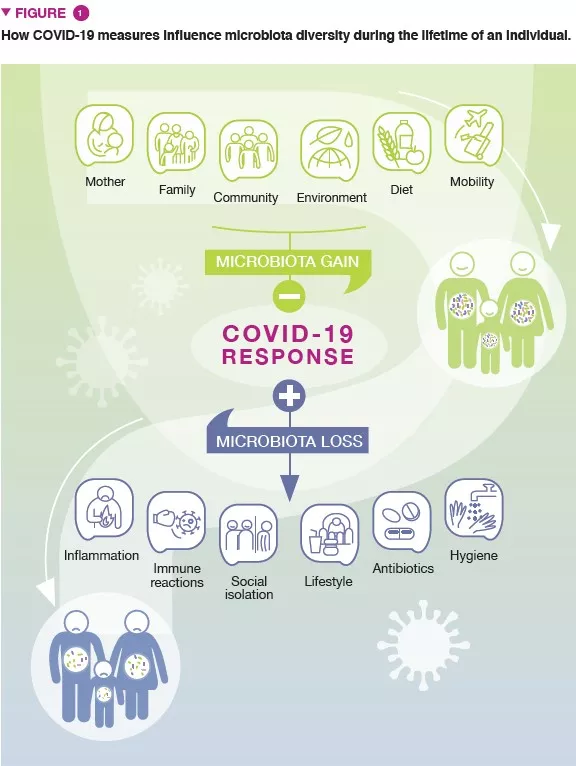The hygiene hypothesis and the COVID-19 pandemic
by Dr Genelle Healey
Lay public section
Find here your dedicated section
Sources
This article is based on scientific information
Sections

About this article
Author
COVID-19, a highly contagious respiratory disease caused by the novel SARS-CoV-2 (severe acute respiratory syndrome coronavirus 2) primarily affects the respiratory tract but gastrointestinal symptoms (i.e. diarrhea, constipation, nausea) have also been reported in some patients.14
Preliminary studies have found that the gut microbiota is altered in patients with COVID-19 and that its composition correlates with infection severity, suggesting crosstalk between the gut microbiota and lung in response to SARS-CoV-2 infection.15
Over the last few decades, a significant reduction in microbial diversity and the overt extinction of ancestral microbes has occurred due to improvements in hygiene (e.g. hand washing and sanitizer), modern medications (e.g. antibiotics) and urban living.17
It should be noted that the changes in lifestyle adopted to curb the COVID-19 pandemic could also have a negative impact on the gut microbiome of uninfected individuals.16
These changes in hygiene, and a corresponding increased incidence of several autoimmune and allergic diseases,18,19 have given rise to the hypothesis that they are causally linked (hygiene hypothesis). Notably, practices implemented to prevent the spread of COVID-19, such as physical distancing, frequent hand washing and sanitizer use, reduced travel and face mask wearing, will likely lead to further loss of key gut microbes.16
Taken together, the preventative health practices that have been implemented due to COVID-19 may exert collateral damage on the gut microbiome as well as long term health outcomes, particularly in children born just prior to or during the pandemic.16 Utilizing approaches known to enhance microbial diversity and support a healthy microbiota balance may prevent the negative health impacts associated with the enhanced hygiene practices implemented to prevent the spread of COVID-19.







